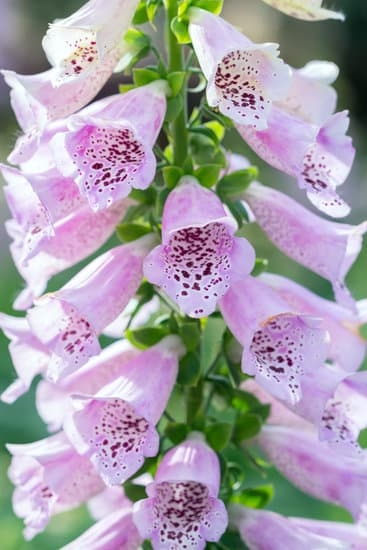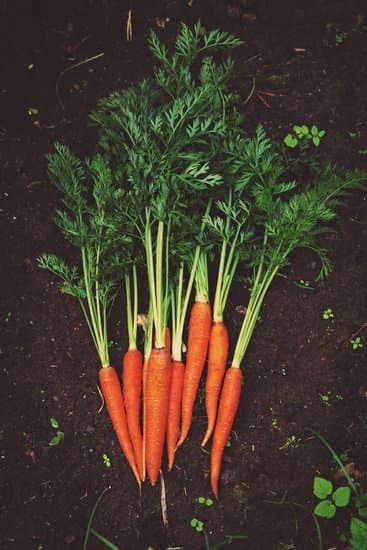Introduction Defining Gardening and Grief
Gardening and grief are two processes that are often related to each other in many ways. Gardening is the practice of cultivating, planting and growing plants, with the aim of producing an aesthetically pleasing and bountiful harvest. Grief on the other hand is an emotional reaction to loss or a particular period of suffering or hardship. It is a natural process that can involve intense feelings of sorrow, sadness and despair.
Exploration Of The Connection Between Gardening And Grief
The connection between gardening and grief may initially appear counterintuitive as one involves creating something new while the other deals with coming to terms with loss. However, over time, various experts have identified key elements which show how they can actually complement each other. Engaging in gardening activities has been known to promote feelings of restoration and self-esteem following a difficult period. This may be explained by the feeling of control – people who garden have more agency over their environment than when dealing with general life issues such as death, illness or financial hardships. Furthermore, gardening can provide a spiritual outlet for those grieving: nurturing plants can act as a parallel to nurturing emotions during this trying time; it even provides moments of joy or success amid sadness. Moreover, working in nature has long been associated with improving moods – studies have shown that working outdoors increases levels of physical exercise which releases endorphins; this further suggests that gardening can be utilized as a form of therapy for those dealing with grief.
What Grief Is
Grief is a natural response to any experience that results in loss. It is an emotion, typically one of sadness, felt after a meaningful event such as the death of a loved one, divorce or job loss. When grieving, individuals are reacting to both physical and emotional changes such as altered hormone levels. These shifts may cause sadness and tears, but can also affect physical health with symptoms like weight loss or insomnia.
Grief is multi-faceted and can be experienced differently for each person. There are various circumstances which may trigger grief including the loss of a friend, pet or home due to natural disasters. It can even follow the end of a meaningful relationship due to infidelity or distance. Though no two experiences of grief are identical, common reactions often include feelings of emptiness or confusion and difficulty concentrating. An individual’s loved ones may notice that their behavior has changed following difficult life events such as miscarriage or substance abuse by a family member; this type of grieving can lead to depression if not addressed properly. Approaches such as counseling might be needed to navigate through these painful emotions more productively rather than allowing them to be suppressed and ignored.
Gardening can be beneficial in coping with grief by providing distraction from difficult thoughts and emotions while simultaneously allowing the opportunity for the individual to express themselves creatively through artful cultivation practices such as landscaping or flower arranging. Gardening can also offer solace during moments filled with distress providing comfort which acts as an incentive for growth despite seemingly insurmountable tragedy. Although it requires effort on behalf of the griever it provides much room for creative expression while also offering positive sensation feedback in areas unrelated to heartbreak which may produce careful consideration regarding potential belongings as well as sensory pleasures that could potentially foster healing at emotionally painful times. Additionally gardening gives purposeful direction when confronted with what feels like uncontrollable circumstance allowing reassuring light at the end oftentimes otherwise hard-to-navigate tunnels surrounding grief filled topics such as death and change without anyone having to question why these things have happened in life’s journey..
How Gardening Can Help You Cope With Grief
Gardening has been known to be therapeutic when it comes to grief. It gives the grieving individual a creative outlet and a constructive task that can help them better cope with their feelings. It offers them an opportunity to work through their emotions, learn more about themselves and develop as people.
Gardening allows us to connect with something bigger than ourselves. As we tend carefully to our plants, watch life grow over time, and appreciate the natural-ness of it, we may find more peace in observing nature’s little miracles. And this connection with something beyond ourselves often helps us heal from the intense pain of losing someone close to us.
Gardening is a way for those feeling grief to meet their need for comfort and provide physical activity which, on its own, can reduce depression and anxiety in bereaved individuals. Working with your hands can help direct your mental energies away from rumination or worry, allowing you to focus instead on completing an action that gives you some sense of accomplishment rather than dwelling on uncontrolled conflicts or distressful matters. Gardening also provides stress relief by providing a simple task – taking care of plants – which require mindfulness and helps bring us back into the present moment rather than trapped in the past. Finally, gardening may allow those who are grieving to express love for their lost loved one; planting something that they planted together or adding something special based on what type of things they liked would be an excellent start at commemorating someone still alive in memory
Therapeutic Benefit of Gardening During Grief
Gardening is a great way to work through the sadness and anger that comes with grieving. The physical activity can be an equalizer for any emotions you are feeling. You can use gardening during those times when it feels like the grief just won’t go away.
It’s also proven by research to have many therapeutic effects on those who are trying to deal with grief and loss. Gardening can help to boost moods and get rid of feelings of hopelessness that come with mourning someone or something that has been lost. It provides a distraction from painful thoughts, as well as being a peaceful outlet where emotions can be managed without feeling overwhelmed. In addition, engagement in yard work and maintenance of gardens helps people feel a sense of control over their surroundings, which boosts self-esteem and encourages healing. Spending time outdoors connected to nature can also help reduce stress levels, while encouraging mindfulness and providing opportunities for creative self-expression. Lastly, gardening is calming yet stimulating – allowing one an opportunity to focus on small tasks at hand while giving one’s mind time to wander amidst nature’s beauty, or even bring clarity or direction for whatever lies ahead in life. So if you are stuck in deep sadness after experiencing a loss, going out into your garden may be exactly what you need!
Exploring Your Feelings Through Gardening
Gardening can be an incredible way to process grief. To do so, first contemplate why you have chosen gardening as a means through which to express your feelings. Doing so may bring additional insight into what it is that you are trying to process or express in this moment.
Consider the impact of your changing environment on the way you grieve and heal. The colors and textures of flowers, foliage, dirt, and sky are powerful tools that can provide solace in times of discomfort and sadness. This can be especially true if you feel connected to nature or were close with someone who had a particular affinity for the outdoor environment. Being surrounded by reminders of nature can help provide comfort while you work through your grief.
In addition to being therapeutic, gardening can also give one purpose during a difficult time—a goal other than simply getting through each day. Even choosing which plants to cultivate and how to tend them can provide some respite from more intense moments of grief. This way, gardening itself becomes a focal point rather than just providing a distraction from grief. There is tremendous beauty in the act of preparing soil for planting, caring for living things, or standing back and admiring one’s carefully tended garden when something new blooms or ripens after months of work—all perfect opportunities to celebrate things that are still life-affirming despite our pain or loss we may be carrying with us. Additionally, getting involved with local gardening or sustainability efforts can build community and connection with others who share your love for nature. Lastly, gardening offers a tangible tribute to those we have lost that serves as both remembrance and renewal while helping us move forward in our lives forever changed
Finding and Connecting With Others Experiencing Grief
Gardening has been linked to dealing with grief in a powerful way. Grieving the loss of a loved one is an incredibly difficult thing to go through, but it doesn’t have to be done alone. Connecting with others who are experiencing a similar kind of pain can help validate our feelings and provide strength in hard times. Whether it’s through support groups, chatting online on message boards or forums, attending memorials, or connecting over shared hobbies such as gardening, reaching out for assistance can make all the difference. By gardening and engaging in conversations about gardening topics with others going through similar emotions and experiences, we can open ourselves up to a community of camaraderie that can review our moods, heal us from within, and even open us up to new possibilities.
It’s not uncommon for gardeners who are grieving to come together spontaneously among themselves or at garden centers or gatherings like plant swaps. These events give those affected by grief an opportunity to express their sorrow without being judged while cultivating meaningful connections based on shared love for plants and nature. Furthermore, studies suggest that actual physical activity such as gardening has therapeutic effects on individuals suffering from depression and anxiety related to the loss of a loved one—not only that but interacting with nature in general can restore hope and self-esteem by reducing stress hormones such as cortisol while lowing blood pressure and heart rate. All these factors help ease the sense of overwhelm that comes with grief by planting the first seeds of hope into our lives once again.
Taking Refuge in Nature
Gardening is a powerful way to navigate the grief process. The simple act of tending the soil can provide comfort and clarity that eludes even our most trusted friends and family during times of mourning. It offers a refuge from the sorrowful chaos of life-altering events and encourages self-reflection that might otherwise go overlooked. Weeding, planting, and arranging plants can provide a grounding effect of mental security which helps us access inner strength when we need it most.
Nurturing a garden can be therapeutic in itself as it gives you something to take care off when dealing with loss or a major transition in your life. In addition to providing distraction from overwhelming emotions, gardening gives us time to reflect on what has been lost, grieving in an environment where we feel safe with ourselves. As we nurture the plants in our gardens that are constantly changing and growing, so too are we able to confront our feelings about death without judgement or pressure from others. Likewise, watching the new beginnings of new individuals within our gardens canlend hope for fresh starts both physically and spiritually as we process our experiences with death and accept change gracefully. Gardening also allows us to open up space for joy amidst all of our sorrows, denoting moments of peace among sadness so thatgrief doesn’t consume us entirely.
Looking Towards the Future
Gardening can be a great source of comfort for those in mourning. The meditative, mindful activity of tending to plants and flowers can help bring peace and understanding to grieving individuals. For some, the connection to nature provides much needed clarity, acceptance, consolation and hope; allowing them to overcome the darkness of sadness and despair that can come with loss.
When approaching gardening activities its important to begin slowly. Start small; with a pot of soil or a few seeds so as to not be overwhelmed by the vastness of cultivation and care giving. Find enjoyment in the simple moments – connecting deeply with each step of the process as you become informed on essential techniques such as weeding, pruning, sowing and harvesting. Take your time getting friendly with the earth, inviting her healing life force into your space
In addition to providing an outlet for emotional processing and peace-making with grief, gardening also offers practical benefits such as reducing stress hormone release in your body while surrounding you with natural beauty thus nourishing your soul. Through planting herbs or fruits/vegetables that have spiritual significance for you or shared meaning in/with others, one may also establish unique ways of memorializing loved ones no longer here- thereby creating garden blessings for years beyond their physical presence yet here to stay for eternity!

Welcome to my gardening blog! I am passionate about plants and enjoy sharing my knowledge and experiences with others. In this blog, I will write about everything related to gardening, from tips on how to get started to updates on my own garden projects.





